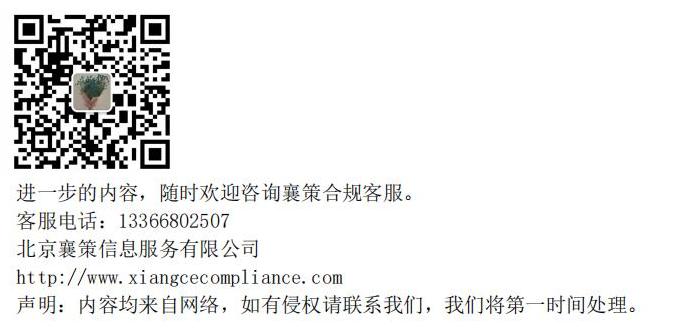中国跨境投融资外汇管理新政研究报告Research Report on China’s New Rules for Cross-Border Investment and Forex Management
录入编辑:襄策合规 | 发布时间:2025-09-17一、引言Introduction
2025年9月15日,国家外汇管理局发布了《关于深化跨境投融资外汇管理改革有关事宜的通知》(汇发〔2025〕43号)。与以往相比,这份《通知》不是单一领域的微调,而是系统性地在外商直接投资(FDI)、跨境融资和资本项目收入支付三个方面推出一揽子便利化措施。对于计划进入中国的外资企业、已经在华运营的跨国公司,以及在中国长期工作生活的外籍人士而言,这一政策将直接影响投资便利度、资金运作效率和房地产购置渠道。
On September 15, 2025, the State Administration of Foreign Exchange (SAFE) issued the Notice on Deepening the Reform of Forex Management for Cross-Border Investment and Financing (SAFE Circular [2025] No. 43). Unlike previous incremental adjustments, this Notice introduces a comprehensive set of facilitation measures across three domains: foreign direct investment (FDI), cross-border financing, and the use of capital account income. For foreign businesses planning to enter China, multinational companies already operating domestically, and expatriates living and working in China, these reforms will directly affect investment convenience, capital efficiency, and property purchase procedures.
二、外商直接投资(FDI)改革的意义Significance of FDI Reforms
《通知》在FDI方面的最大亮点是取消前期费用登记和境内再投资登记,并允许外资企业将其合法利润以外汇形式在境内再投资。这意味着外资进入中国的制度门槛进一步降低,企业资本循环效率得到显著提升。此前,外资企业在扩张过程中经常遇到手续繁琐、时间成本高的问题,如今这些障碍正在被系统性消除。
此外,将科研机构纳入外资接收主体,尤其是将“科汇通”试点推广至全国,表明外汇管理部门正在积极引导外资流向科技创新和研发领域。这对跨国公司在华设立研发中心、与高校科研机构合作具有积极意义,也与中国推动创新驱动发展的战略目标高度契合。
The most notable FDI reforms include the removal of upfront expense registration, the elimination of reinvestment registration for FDI enterprises, and the explicit permission for foreign investors to reinvest their legitimate FX profits domestically. These changes substantially reduce institutional barriers and improve the efficiency of capital circulation. In the past, foreign investors frequently faced complex paperwork and time delays during business expansion; these obstacles are now being systematically dismantled.
Moreover, by extending the eligibility to research institutions and rolling out the “KeHuiTong” pilot nationwide, the authorities are channeling foreign capital into R&D and innovation. This is highly relevant for multinational companies establishing research centers in China or partnering with universities and institutes, and it aligns closely with China’s innovation-driven development strategy.
三、跨境融资改革对科创企业的机遇Opportunities for Tech Enterprises under Cross-Border Financing Reforms
跨境融资方面的改革重点在于额度和手续两方面。一方面,科技型中小企业和“专精特新”企业的融资便利化额度从此前的500万美元提升至1000万美元,部分高质量企业甚至可获准达到2000万美元。这一变化对于融资渠道有限的中小企业意义重大,将有助于缓解“融资难、融资贵”的长期问题。
另一方面,取消经审计财务报告的强制提交,意味着企业在办理跨境融资时的合规成本显著降低,融资流程更为高效。这将直接提升企业的国际融资能力,也为外资股东注资、集团内部资金调配提供更大灵活度。
The cross-border financing reforms focus on two areas: quotas and procedures. First, the facilitation quota for technology-based SMEs and “specialized, refined, distinctive, and innovative” firms has been doubled to USD 10 million, with top-performing companies eligible for up to USD 20 million. For SMEs with limited financing channels, this change is highly significant, alleviating long-standing issues of limited access and high costs of funding.
Second, the removal of mandatory audited financial reports reduces compliance burdens and accelerates financing processes. This directly enhances firms’ ability to raise funds internationally while offering greater flexibility for capital injections from foreign shareholders or intra-group funding arrangements.
四、资本项目收入支付与房地产政策调整Capital Account Income Usage and Adjustments to Real Estate Policies
资本项目收入支付领域的变化涉及企业和个人两个层面。对于企业而言,负面清单的缩减和银行审查灵活度的提升,使企业在境内使用外汇收入或结汇所得人民币时拥有更大自主权。这不仅改善了资金使用效率,也减少了行政干预。
对个人而言,政策最引人关注的是房地产相关调整。一方面,取消了“不得用于购买非自用住宅性质房产”的限制,标志着外汇管理在房地产市场调控中的角色正在弱化。另一方面,将港澳居民在大湾区的“先结后补”试点推广至全国,使外籍人士购房流程更贴合实际需求。外籍人才只需购房合同即可办理外汇结汇支付,后续再补交备案文件。这无疑降低了外籍人士在华置业的门槛,有助于吸引长期在华工作的高端人才。
In the domain of capital account income, the changes affect both corporates and individuals. For businesses, the shortened negative list and greater flexibility in bank reviews mean more autonomy in using FX income and converted RMB within China. This enhances efficiency and reduces administrative intervention.
For individuals, the most notable adjustment relates to real estate. On one hand, the removal of restrictions on purchasing non-self-use residential property suggests a reduced role of forex controls in real estate regulation. On the other hand, the nationwide expansion of the “settle first, file later” scheme (piloted in the Greater Bay Area) makes the property purchase process much more practical for expatriates. With only a contract required for FX settlement, followed by later filing, foreign professionals face a lower barrier to home ownership, a move that is likely to improve China’s attractiveness to international talent.
六、结论Conclusion
对于外商企业而言,这些政策的落地意味着在中国投资、融资和资金运作的整体便利度显著提升。尤其是在科技创新、产业升级和人才流动等领域,改革将带来切实的制度红利。对于个人而言,房地产相关政策的优化也使外籍人士在中国生活更为便利。总体而言,这份《通知》不仅是外汇管理的一次制度升级,更是中国对外开放在金融领域的重要信号。
For foreign businesses, these new rules significantly enhance the overall ease of investing, financing, and managing funds in China. The reforms are particularly impactful in areas such as innovation, industrial upgrading, and talent mobility, offering tangible institutional benefits. For individuals, the optimization of property-related rules improves the living experience of expatriates in China. In sum, this Notice represents not only a regulatory upgrade in forex management but also a strong signal of China’s continued financial opening-up.





